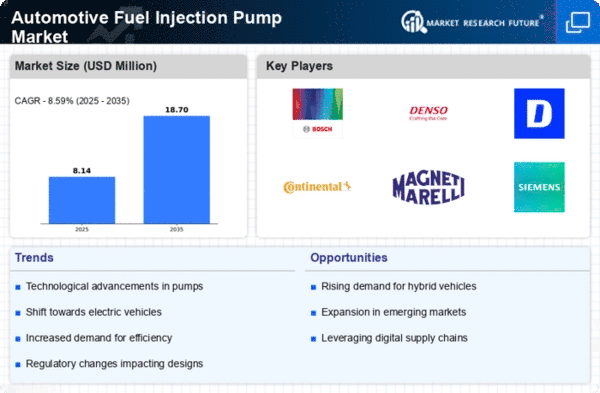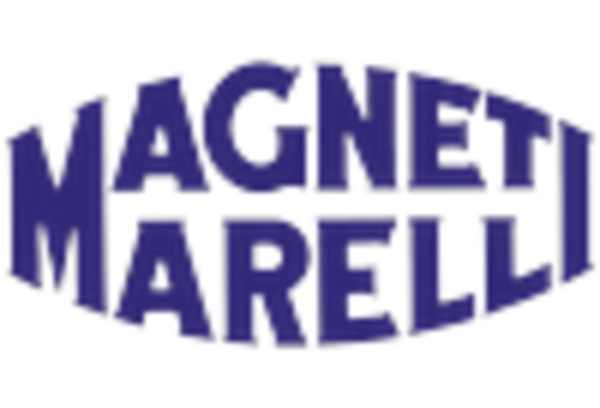Market Trends
Key Emerging Trends in the Automotive Fuel Injection Pump Market
In the realm of the Automotive Fuel Injection Pump market, strategies for capturing market share are instrumental in defining a company's presence. Various approaches are utilized by businesses to position themselves effectively within this competitive landscape. Differentiation stands as a crucial strategy where companies highlight unique features or technologies in their fuel injection pumps. For instance, some focus on pumps that offer higher efficiency, improved fuel economy, or compatibility with alternative fuels, aiming to distinguish their products in a crowded market by delivering enhanced performance or versatility.
Cost leadership is another pivotal strategy employed by companies in this market. Here, the emphasis is on becoming the most cost-efficient option without compromising quality. This might involve optimizing manufacturing processes, sourcing materials at lower costs, or streamlining distribution networks to offer competitive pricing. By positioning themselves as a cost-effective choice, these companies attract price-conscious consumers and gain an edge in a market where affordability is a significant factor influencing purchasing decisions.
Additionally, niche targeting is a strategy that some companies adopt in the Automotive Fuel Injection Pump market. Rather than catering to a broad consumer base, they focus on serving specialized segments or specific vehicle types. For instance, a company might specialize in fuel injection pumps designed explicitly for heavy-duty commercial vehicles or for high-performance sports cars. This targeted approach allows companies to become experts in their chosen niche, addressing unique needs and establishing a strong foothold within a specialized market segment.
Furthermore, customer-centric strategies play a vital role in market share positioning. Companies prioritize excellent customer service, warranty offerings, and customization options to cater to diverse consumer needs. By understanding and addressing specific customer requirements, these companies build strong relationships with their clientele, fostering loyalty and positive brand advocacy that can significantly impact market share.
Collaborations and partnerships also feature prominently as a strategy for market positioning. Companies might form alliances with other automotive manufacturers, technology providers, or fuel system specialists to create integrated solutions. For example, collaborating with engine manufacturers to develop fuel injection pumps that optimize engine performance and fuel efficiency. Such partnerships not only enhance product offerings but also expand market reach through shared networks and combined expertise.
Moreover, continuous innovation remains a cornerstone strategy for many companies within this market. Investing in research and development to introduce cutting-edge technologies and improve pump efficiency allows companies to stay ahead. Those that consistently innovate and adapt to evolving automotive trends stand a better chance of capturing market share by attracting forward-thinking consumers and staying competitive in an ever-changing industry.
In summary, market share positioning strategies in the Automotive Fuel Injection Pump market encompass a spectrum of approaches. Companies leverage differentiation, cost leadership, niche targeting, customer-centric practices, collaborations, and innovation to establish their foothold. By understanding consumer needs, optimizing strengths, and adapting to market dynamics, businesses aim to not just capture market share but also to sustain and expand their presence in this fast-paced and evolving automotive sector.



















Leave a Comment